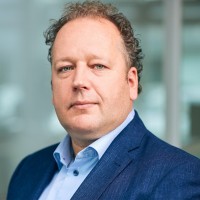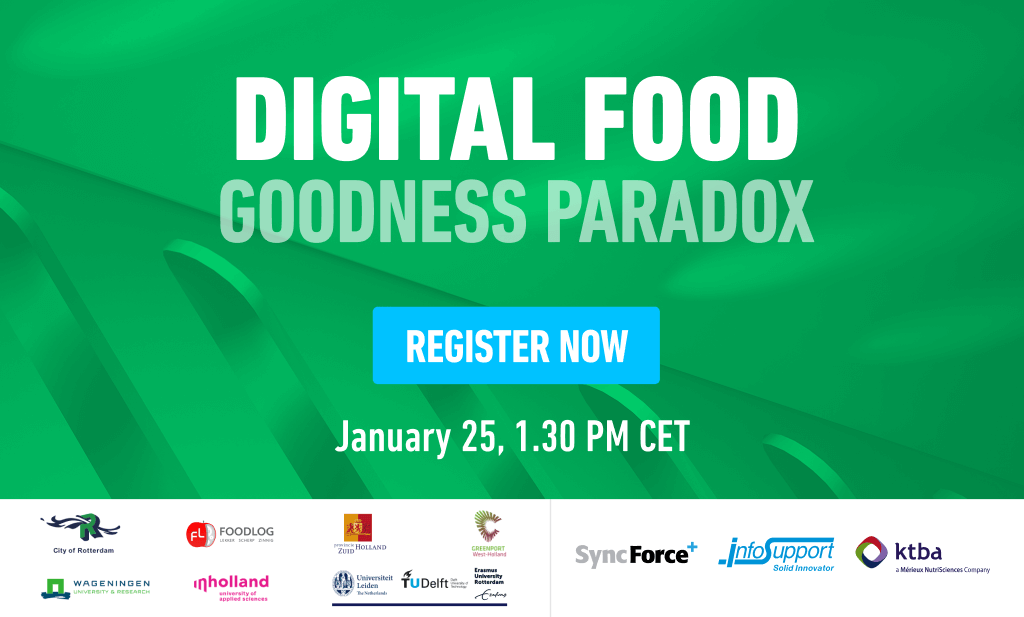Join us on Tuesday, January 25, from 1:30 PM till 2:15 PM (CET) + 45 more minutes of informality (if you care to stay on) for the first chat this winter in the Digital Food series.
You can't have your cake and eat it too. That is logically impossible.
Every decision has consequences and trade-offs in an opposite direction. Take broilers, for example. Better animal welfare implies a slower growing breed, additional space to move around and more feed. Happier chickens emit more CO2 and use more land to the detriment of nature. Alternatively, consider organic or nature inclusive agriculture. They require less pesticides but produce lower outputs and require more land, once again, to the detriment of nature. There are many more trade-offs like those.
Companies today need systems that aren't just good for business. They also need to be good for the planet as we know it and general wellbeing. Integral metrics scoring sustainability result in a rapidly upcoming 'goodness paradox', says Hans de Gier, CEO of SyncForce.
Consumers tend to have distinct but conflicting ideas about goodness. They will discover they’ll have to choose between having and eating their cake. That’ll change the face of value-driven business propositions.
Both companies and their customers will have to make informed choices based on what they think is most important to appeal to customers. “Everything has to be driven by data in order to standardise efficiency and quality," as De Gier puts it, “the foundation for an intelligent value network is a connected, data driven value network." How do we do that?
Care to join us in jumping to the next level in sustainability marketing? Registration is no longer possible.
Every decision has consequences and trade-offs in an opposite direction. Take broilers, for example. Better animal welfare implies a slower growing breed, additional space to move around and more feed. Happier chickens emit more CO2 and use more land to the detriment of nature. Alternatively, consider organic or nature inclusive agriculture. They require less pesticides but produce lower outputs and require more land, once again, to the detriment of nature. There are many more trade-offs like those.
Companies today need systems that aren't just good for business. They also need to be good for the planet as we know it and general wellbeing. Integral metrics scoring sustainability result in a rapidly upcoming 'goodness paradox', says Hans de Gier, CEO of SyncForce.
Consumers tend to have distinct but conflicting ideas about goodness. They will discover they’ll have to choose between having and eating their cake. That’ll change the face of value-driven business propositions.
Both companies and their customers will have to make informed choices based on what they think is most important to appeal to customers. “Everything has to be driven by data in order to standardise efficiency and quality," as De Gier puts it, “the foundation for an intelligent value network is a connected, data driven value network." How do we do that?
Care to join us in jumping to the next level in sustainability marketing? Registration is no longer possible.
Speakers

Hans de Gier is the CEO and founder of SyncForce. The company organises all information flows within organisations of packaged goods manufacturers. SyncForce specialises in rethinking processes instead of just automating them. From the perspective of SyncForce, digitalisation leads to new approaches to old ways of organising.
The panelist next to Hans de Gier will be announced soon.

Hans de Gier is the CEO and founder of SyncForce. The company organises all information flows within organisations of packaged goods manufacturers. SyncForce specialises in rethinking processes instead of just automating them. From the perspective of SyncForce, digitalisation leads to new approaches to old ways of organising.
The panelist next to Hans de Gier will be announced soon.
Related



